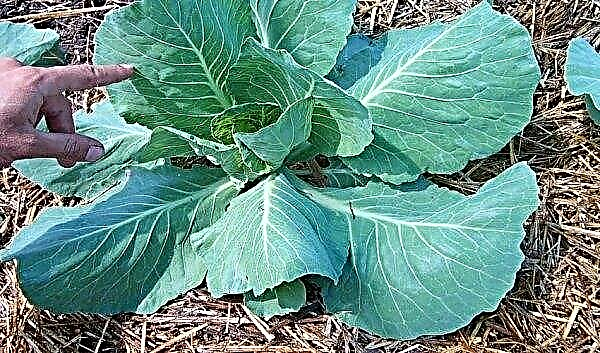You can meet turkey eggs on store shelves very rarely, this is due to the fact that turkeys are grown exclusively for meat, and eggs are used to breed offspring. But if you can find them on sale, be sure to buy them - they are very useful. In this article, detailed information about this food product, its positive effect on the body and the features of use in the diet will be considered.
Is it possible to eat turkey eggs
Of course, like the eggs of any poultry, turkey can also be eaten. Usually they are eaten ready-made, previously subjected to heat treatment.
Can I eat raw
It is known that a raw egg is very useful for the body, as it can envelop the gastric mucosa and significantly reduce acidity. Therefore, poultry eggs are often consumed raw in order to ease well-being and reduce pain in diseases of the stomach. However, raw turkey eggs need to be especially careful. This is due to the poor digestibility of protein by the body, which is in large quantities in the composition of such food.
However, raw turkey eggs need to be especially careful. This is due to the poor digestibility of protein by the body, which is in large quantities in the composition of such food.
Important! Having eaten such raw foods is very likely to cause an upset stomach.
In addition, the use of a raw product should be minimized or completely eliminated from the diet, since there is a high probability of salmonella entering the body. Salmonellosis is a very dangerous disease and requires immediate hospitalization and outpatient treatment.
Particularly serious consequences of infection can occur in children and the elderly.
Structure
Turkey eggs are a storehouse of useful vitamins and minerals, so they are very much appreciated among protein foods. Such food is considered quite high-calorie: it contains 165 kcal, most of which are proteins and fats with a minimum amount of carbohydrates.
The composition also contains unsaturated fatty acids, in the amount of 3.6 g, water - 72.5 g, ash - 0.8 g cholesterol - 0.9 g. Despite the presence of cholesterol in this food product, it does not cause vascular plaques in the human body. The composition also contains vitamins A, B2, B6, D and E. In addition, the product is rich in cobalt, iodine, sodium chloride, copper, calcium, zinc, manganese, potassium, iron, magnesium, phosphorus, selenium.
The composition also contains vitamins A, B2, B6, D and E. In addition, the product is rich in cobalt, iodine, sodium chloride, copper, calcium, zinc, manganese, potassium, iron, magnesium, phosphorus, selenium.
Did you know? The composition of turkey eggs may vary depending on the season when they were laid. For example, if they are collected at the beginning of summer, they are more balanced in terms of nutrients, since the bird during this period consumes a large amount of fresh grass.
Benefit and harm
Due to the large number of vitamins and minerals in the composition of the product, it undoubtedly has a positive effect on the human body. But in case of non-compliance with the recommendations for use, people can experience adverse reactions of the body and worsen the state of health.
- Useful properties include:
- normalization of the heart and strengthening of blood vessels;
- normalization of metabolism in the body;
- strengthening the immune system;
- elimination of problems with the stomach and intestines;
- normalization of the nervous system, getting rid of insomnia and the fight against fatigue;
- normalization of the amount of acid in the stomach;
- restoration of ligaments and strengthening bones;
- improving the quality of hair, nail plates, teeth;
- preventive effect on the body, the prevention of rickets and osteoporosis;
- Such food can harm people who:
- suffer from intolerance to the components of the product (harm manifests itself in the form of allergic reactions of the body);
- have problems with the breakdown of proteins in the body (the harm from consumption is manifested by the development of problems with the kidneys and liver);
- are overweight (due to the high calorie content, regular use of turkey eggs can lead to a set of extra pounds).

How often can I eat?
Since these eggs have a high calorie content, they are not recommended to be consumed very often. To benefit the body, saturate it with the necessary vitamins and minerals, but not harm its health, it is enough to use them 2-3 times a week, 1 per day.
How to cook
To use such food was safe for health, it must be thermally processed before use. Cook the product for 10 minutes. Before breaking the shell, it is recommended to wash it thoroughly with a brush and laundry soap so that salmonella does not get inside.
There are many recipes for cooking. The product can be baked in the oven, fried in a pan, cooked or steamed. It can also be added to any dishes that contain eggs. They are often marinated and salted, as they are characterized by the absence of a characteristic egg smell.
How to store eggs
Storage of turkey eggs should be carried out in the refrigerator, at a temperature of +2 to +6 ° C. In a cool environment, they can be stored for 25 days. Before you put them in the refrigerator, you can’t wash the shell - with such actions you will significantly reduce their shelf life. Often, housewives use the product for baking, separating the proteins from the yolks. Proteins can be stored for up to 5 days in a hermetically sealed container in the refrigerator. For better preservation, the yolks are filled with cold water and placed in a hermetically sealed container in the refrigerator, the shelf life of the yolks in this case is 2-3 days.
Often, housewives use the product for baking, separating the proteins from the yolks. Proteins can be stored for up to 5 days in a hermetically sealed container in the refrigerator. For better preservation, the yolks are filled with cold water and placed in a hermetically sealed container in the refrigerator, the shelf life of the yolks in this case is 2-3 days.
Due to the loose structure of the shell, the product can easily absorb unpleasant odors, so it should be placed away from food that gives off harsh aromas.
To reduce the likelihood of extraneous odors penetrating the shell and extend the shelf life of eggs, they can be treated with a self-prepared mixture based on sunflower and flax oils with the addition of paraffin (all products are taken in equal amounts).
Important! The eggs treated with this mixture will be stored much longer - about 3 months.
What is the difference from chicken
Turkey eggs are very similar in taste to chicken, however, some people note the lack of a characteristic egg flavor in turkey. Also, turkeys are considered more dietary and healthy, as they contain less cholesterol and significantly more valuable substances.
Externally, such a product is characterized by a larger size, the presence of small brownish spots on the surface, a loose, but strong shell structure.
| Calorie content | 165 kcal |
| Squirrels | 13.1 g |
| Fats | 11.7 g |
| Carbohydrates | 0.7 g |
Thus, it can be argued that turkey eggs are a very useful product, which is recommended to be included in the menu to provide the body with useful vitamins and minerals. To get the most benefit, you only need to follow the recommendations for preparation and use.












